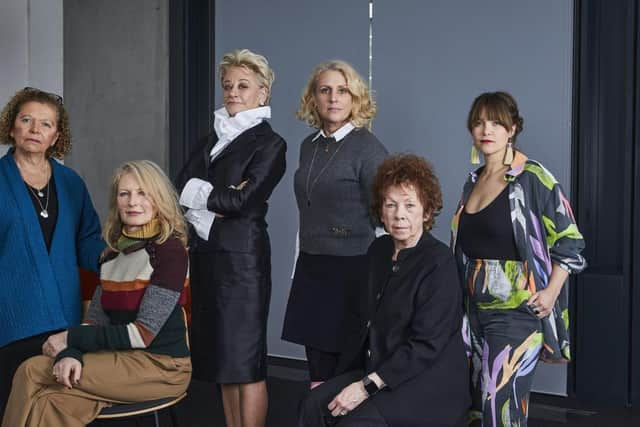WACL: what is advertising group in Mad Women documentary on Channel 4 as they celebrate 100th anniversary
and live on Freeview channel 276
Mad Women is a special one-off documentary commissioned by Channel 4 to coincide with the 100th anniversary of the WACL, a group established to promote women in advertising and make the industry more equal.
TV advertising in the UK is now a £5 billion industry, with ads hosted on hundreds of television channels and on some streaming platforms such as Amazon Freevee and Netflix’s new reduced cost subscription tier. The average person in the UK will see more than 30 ads per day, and they can be very influential, in fact that’s how they’re designed.
Advertisement
Hide AdAdvertisement
Hide AdAdverts haven’t always got things right - recent examples of ads that backfired include Kendal Jenner’s Pepsi ad back in 2017, and the Bud Light Dylan Mulvaney collaboration which saw sales of the drink drop by a third. Many UK adverts from across the years have issues of their own, and some appear sexist or racist from a modern perspective.
Mad Women investigates the role of women in changing advertising, both in who is creating the adverts, and what the ads look like when they air.


What is the WACL?
The WACL stands for Women in Advertising and Communications Leadership, although it was originally named The Women's Advertising Club of London. The group celebrates its 100th anniversary this year. According to the WACL’s own website, it is an organisation which was established to ‘accelerate gender equality’ in advertising as well as other communications industries.
The Club was formed in London in September 1923 in expectation of the arrival of women in advertising in the US ahead of a convention being held in the UK the following year. This was a time when mass consumerism really began to take off in the UK, as more people entered the middle class, and luxury goods and leisure became available to a larger proportion of the population.
Advertisement
Hide AdAdvertisement
Hide AdIn later decades, through the advent and growth of television (helped along by Queen Elizabeth II’s coronation) and an upswing in economic stability in the post-war years, advertising became a major part of everyday life.
Membership of the group is for senior women in the world of advertising and is by invitation only. The group has just 270 members, including eight honorary members.
Today the Club continues to work to bring about change in the advertising industry, including by promoting flexible working, which is particularly beneficial for working mothers, and campaigning to end the gender pay gap. A 2023 survey from Marketing Week found that there is a 18.6% pay gap between female and male marketers at the executive and senior executive level.
The WACL also aims to improve the representation of women in the media - advertising in particular has a troubled history with the portrayal of women as sex objects or domestic servants.


What is Mad Women about?
Advertisement
Hide AdAdvertisement
Hide AdChannel 4 documentary Mad Women takes inspiration for its name from the AMC drama series Mad Men, which followed the mostly male staff at a prestigious advertising company on Madison Avenue, New York.
Mad Women follows the female pioneers of advertising in the UK from the last 100 years and looks back at some of the most iconic TV ads created by or starring women, from Jenny Logan as the Shake n Vac woman to Tiger Savage’s ‘The Lynx Effect’ series.
The documentary will feature women who have worked in the industry in the 1970s, when the world of advertising was a very different place, and they will discuss their experiences and the challenges they had to overcome to get ahead. It will also look at how far the WACL has come over the last century, and what work is still to be done.
When is Mad Women on TV?
Mad Women: Ads That Changed the World is a one off hour-long documentary which will air on Channel 4 on Tuesday 9 May at 10pm. It will also be available to watch on Channel 4 online shortly after it first airs.
Comment Guidelines
National World encourages reader discussion on our stories. User feedback, insights and back-and-forth exchanges add a rich layer of context to reporting. Please review our Community Guidelines before commenting.
